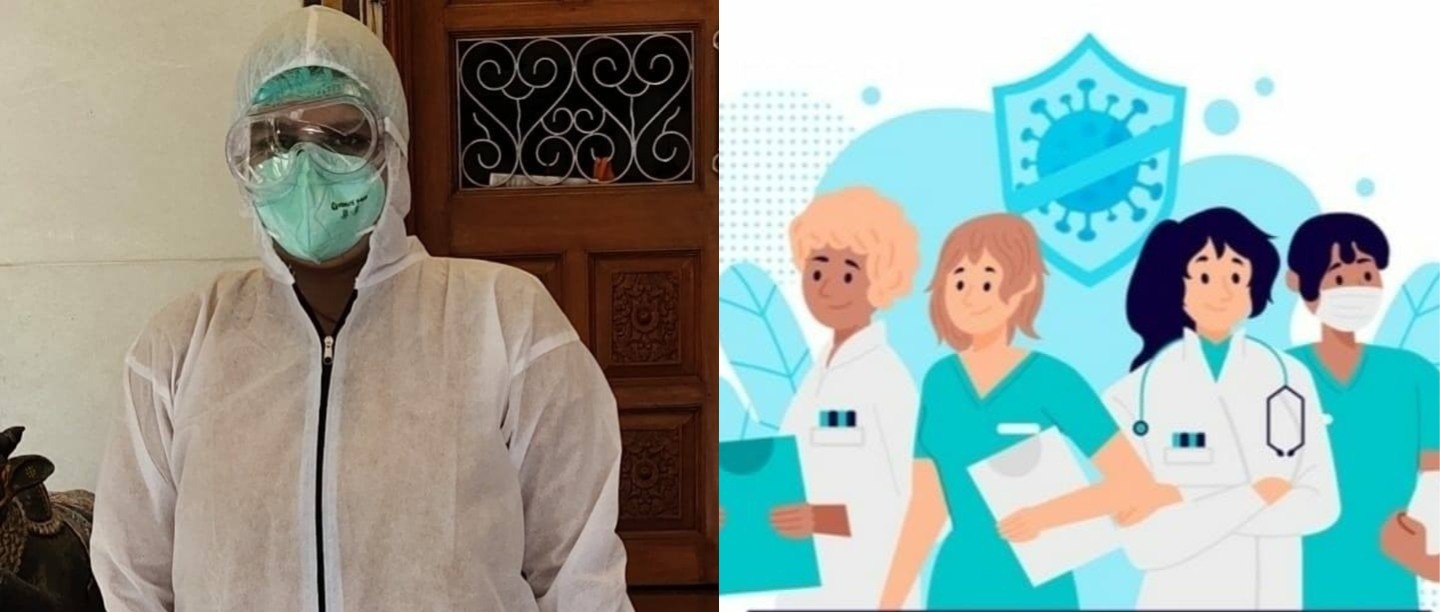
It was in December last year that the novel coronavirus first impacted Wuhan and had the world wondering about this new kind of virus that spread like wildfire. Within a couple of months, the virus took over the entire world and the WHO had to declare it a pandemic soon after calling it a “public health emergency of international concern.” More than half a year has passed since then, and the virus is not just very much present but continues to hamper our daily lives. And we definitely need to give it to the COVID-19 frontline workers for holding the fort for us all this while.
Sometime around March, images of the healthcare workers who have been braving the virus went viral. And perhaps we’ll never be able to erase their images with those haunting mask scars from our collective memories. However, suffocating PPE suits and mask scars are perhaps just the tip of the iceberg when it comes to the hardships that the healthcare workers have been facing.
Reshma Shinde, a Junior Resident Doctor in Pathology Department at Mumbai’s KEM hospital recently took to Facebook to share what it is like to be a COVID-19 frontline warrior while being a menstruating woman in India. In an open letter, Reshma has also talked about the stigma they have to face on a day-to-day basis, despite the fact that they are the ones who have been fighting the pandemic for everyone else all this while.
Reshma addressed the very important though seldom talked about topic of menstruating frontline workers in her letter as she writes “If a female doctor can’t talk comfortably about her periods, how can we expect society to? I had a weird feeling in my mind about the deadly combination of bleeding and sweating simultaneously in a PPE. So in the initial days, I managed to manipulate my COVID duties according to the convenient time of my menstrual cycle. When I spoke about this with my female counterparts, they too shared the same concern.”
However, she said, “periods occur even in a pandemic.” Sharing the story of a female anaesthetist who started menstruating during her COVID-19 duty, Reshma wrote, “It was after two hours of donning PPE, she realized she had started bleeding but she continued to work in the same PPE to avoid wastage of PPEs. As it was waterproof, she could work without fear. After her shift ended, it took her 45 minutes to doff her PPE and discard it after sanitizing.”
As truly said by Reshma, periods don’t stop during the pandemic and it was high time that someone addressed the issue. In her letter, Reshma has further brought out society’s hypocrisy in praising her from a distance but otherwise harbouring deep prejudices for her as well as the word “COVID”, and everything and everyone somehow associated with it including the healthcare workers.
As she sahred, “During this COVID pandemic, after society came to know that I am doing covid duties, my house was showered with praises. It was recently when I celebrated my 28th birthday, something hard struck in my mind. Though my house was blessed with praises for my work, marriage proposals had stopped knocking my house doors. It took me no time to realize, that, it was due to the stigma associated with the word ‘COVID.'”
Featured Image: Facebook
Read More From Lifestyle
Queer Community Shares How They Came To Realise Their Sexualities & What It Meant To Do It In India
Manya Ailawadi
Rahul Rai: The Internet’s Emotional Support Boyfriend Who’s Giving Us All A Reason To Blush
Harshita Singh
A Ladies Stay-cation At Radisson Blu Plaza Delhi Airport May Be Exactly What You Need To Unwind
Manya Ailawadi